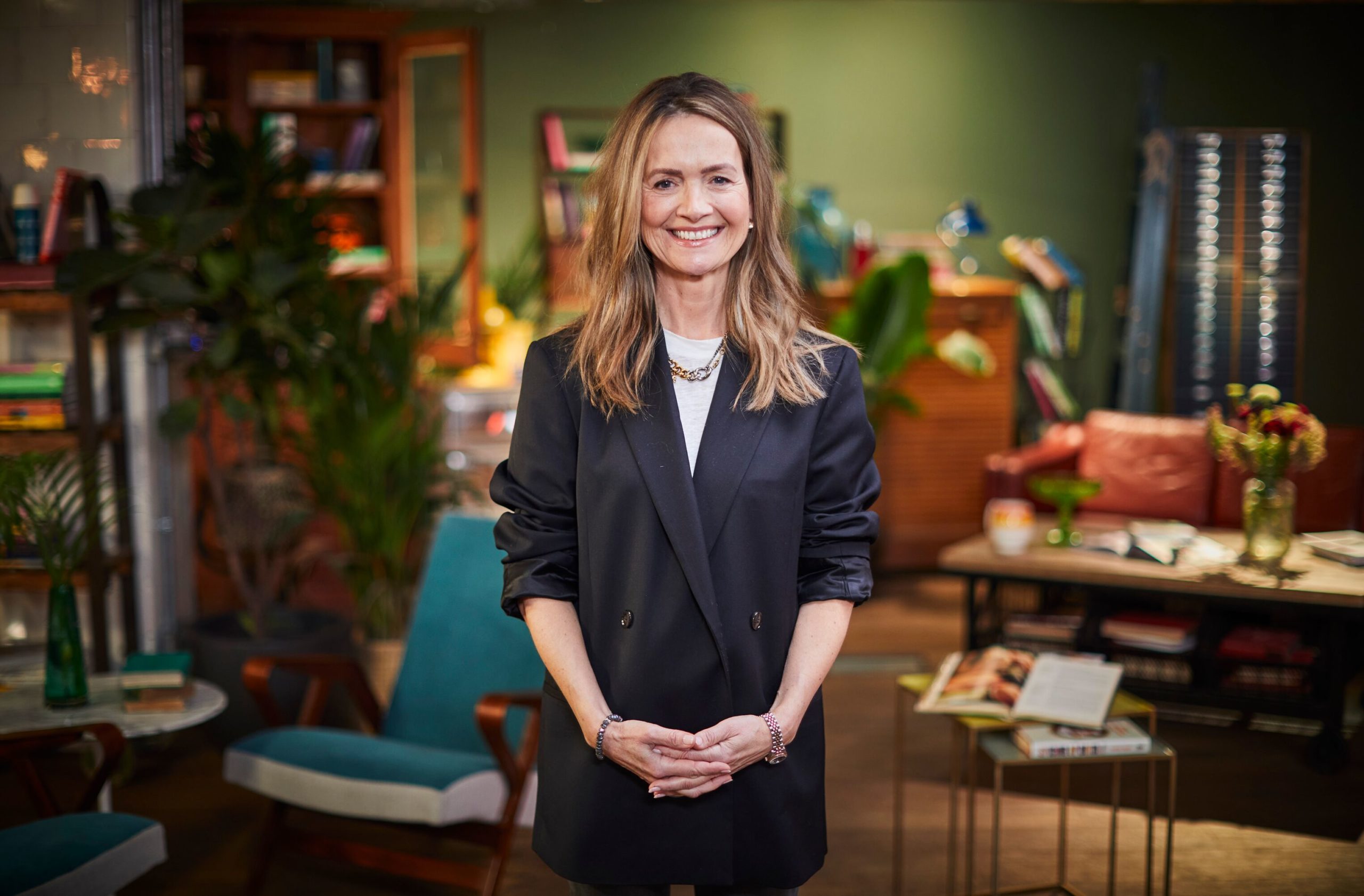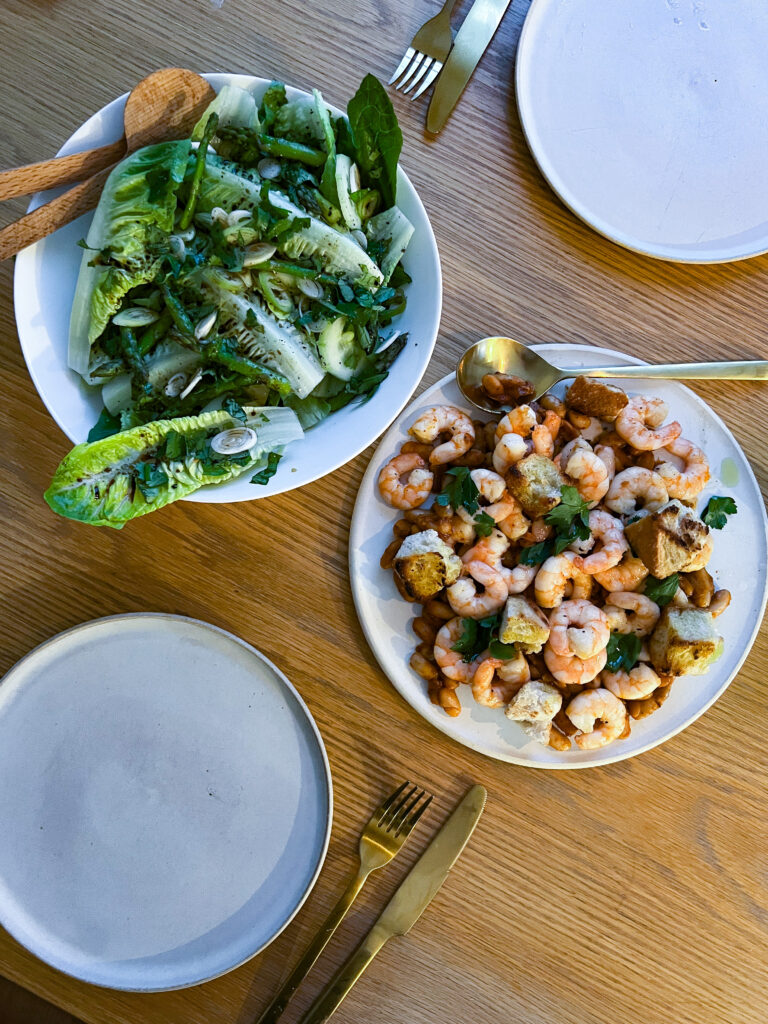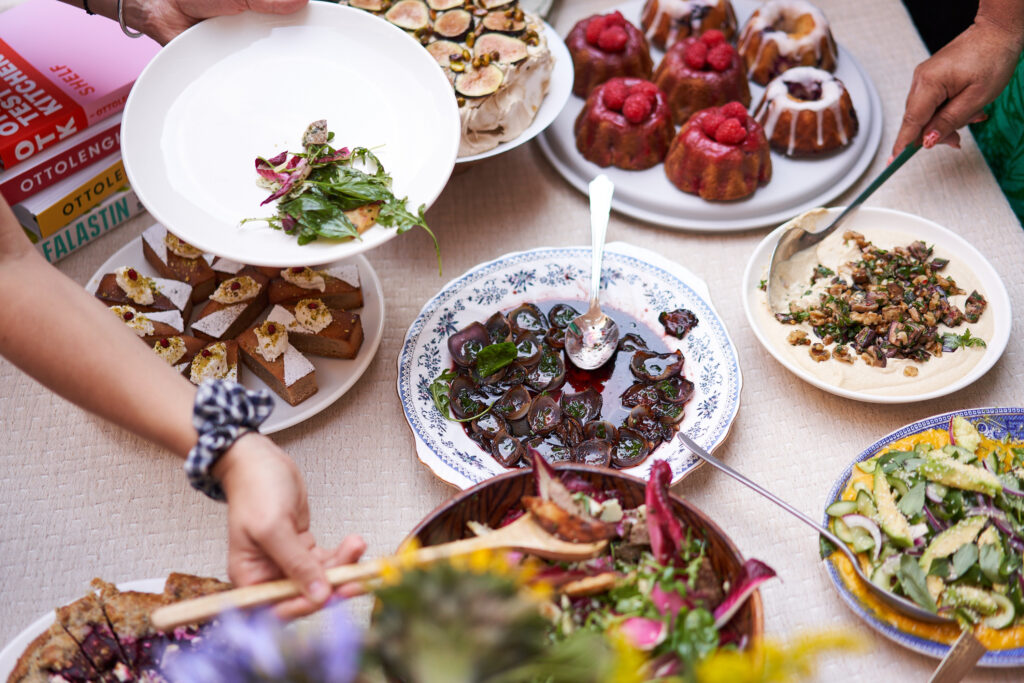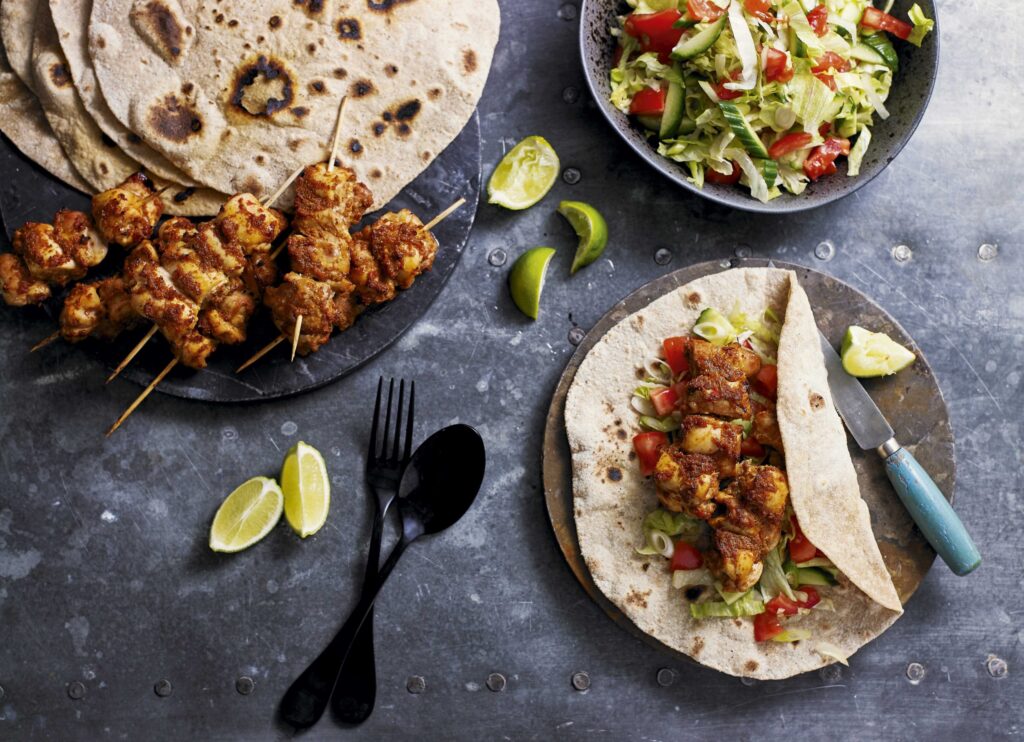With its compelling contestants, thought-provoking challenges, and star-studded judging panel, Channel 4’s The Great Cookbook Challenge has been brightening up our Monday evenings for five weeks now. If you’re a fan of the show, you’ll already be familiar with the wisdom, passion, and insight of its head judge Louise Moore. As the Managing Director of Penguin Michael Joseph, Louise is an expert on all things publishing-related and has been carefully crafting cookbooks for over twenty years. We sat down with Louise to chat about the process of making the show, the challenges inherent in cookbook publishing, and why online recipe sites won’t be replacing cookbooks any time soon.
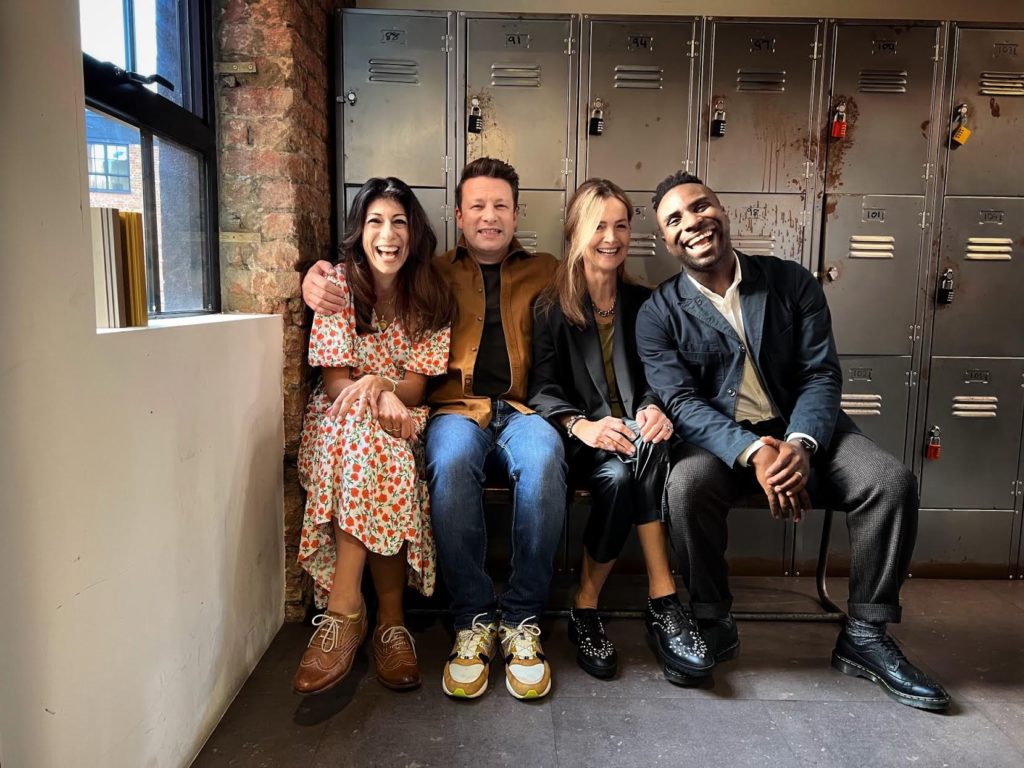
First of all, we just wanted to say how much we’re enjoying The Great Cookbook Challenge. Can you tell us a little bit about how the idea for the series came about?
The idea was introduced to us via Jamie, who had been discussing it with his team and the production company behind the show. As a longstanding cookbook author, Jamie wanted to give others the chance to see behind the scenes and understand a bit more about the world of cookbook publishing, as well as offering a new route into the industry for those who might not otherwise know where to start. As Jamie’s publisher of over twenty years, we naturally wanted to support the project, and it felt only right that we help open the doors into publishing a little wider and contribute towards making it more accessible, more transparent, and more diverse.
You feature on the show’s judging panel alongside Georgina Hayden and Jimi Famurewa. How do you feel the roles you played as judges differed? Did you each bring a different perspective?
Although food and cookery is our common thread, we all have quite different day jobs, so we each brought our own expertise and perspective to the judging panel. Jimi’s expertise is very much in the eating; he has an appreciation for tastes, textures, the appearance of food on a plate, and the overall dining experience. As a journalist and writer he is able to put those experiences into words in a way that helps others imagine them vividly for themselves. His presence on the panel ensured that the cooks have the ability to create meals that are genuinely good to eat!
Georgie has a very technical and creative background; her many years as a recipe developer and recipe writer mean that she was able to assess the quality of the contestants’ recipes at a glance and identify any gaps or omissions that might make them problematic for the home cook. She also understands food styling and how to make food look its best on a plate or in a photograph, so she was able to envisage how each contestant’s recipes would translate onto the page and whether this could be done in a way that would result in an attractive, useful and appealing book.
My priority was to assess the commercial potential of each contestant – how we might sell them and their food to consumers, what else their book would have to compete against in the retail landscape, and how easy it would be to secure marketing and publicity coverage, based on the theme, look, tone and style of their food and the way they presented it and talked about it. The books which sell best usually solve a problem or answer a need, and meals that are good to eat in a restaurant or which look beautiful in a photograph are not necessarily the same recipes which will appeal to, for example, busy supermarket shoppers looking for quick midweek solutions. So while taste and cooking skills were important, I was also looking for someone who I felt consumers would connect with.
Did you go into the show with a clear sense of what you were looking for in the winner? What were you hoping to find?
The cookery market often moves very quickly and trends can take off but then disappear again soon afterwards, so we were open-minded about the type of food or cuisine on offer. But we knew we were looking for someone whose cooking delivered on flavour, whose recipes would feel achievable to the home cook, and who was able to offer a clear selling point or promise to the consumer, so that there was an obvious reason for others to want to buy their book and for retailers to want to stock it.
What are the biggest challenges of publishing a cookbook?
There are lots of layers and stages to creating a cookbook and quite a number of people involved, so the production process itself is always a big undertaking, from testing recipes and ensuring the accuracy of details like oven temperatures and timings, to the broader decisions around what the title should be or the overall look and feel. Bringing all of these details together on schedule can be a big feat of project management. Cookbooks are also very expensive to produce – the food photography alone can cost tens of thousands of pounds, and that’s before we’ve paid for paper and binding and haulage costs, etc. A cookery book is always a big outlay and we have to be confident we can sell a certain number of copies if we’re to stand any chance of recouping our investment, let alone making a profit. Once the book is created, the next challenge is ensuring it stands out in a hugely crowded market, into which thousands of new cookbooks are published every year but only a handful cut through. Building an effective marketing and publicity campaign is crucial, but every author wants that coveted slot on breakfast TV or that column in the weekend food supplement, so we are constantly pitching against many others and always looking for ways to ensure that it’s our book and author who gets the coverage.
What do you think the contestants, or indeed anyone hoping to publish a cookbook, can learn from Jamie Oliver?
There are very few cookery authors who have managed to achieve the longevity that Jamie has, and whose cookbooks continue to sell in such significant numbers after so many years. Jamie has achieved this by keeping his food relevant and constantly challenging himself to offer something fresh and authentic to the market, as well as by listening to his fans and responding to what they like and want. All Jamie’s recipes get thoroughly tested, not just by him personally, but also by his incredibly talented food team so that readers can absolutely rely on his recipes. There’s a level of trust there that has been earned over many years. Anyone publishing a cookbook or looking to build a longstanding food writing career can learn from Jamie about the importance of connecting with the consumer and thinking about how and why home cooks will use the particular book they wish to write.
What do you hope viewers of the show will learn about the publishing world?
People have such a passion and love for books that outside the industry it often seems to get forgotten that publishing is also a business and that ultimately as publishers we have to ensure our books will sell and make money. Hopefully, the series will help demystify why some ideas or books get signed up while others don’t – all of the contestants are talented and accomplished cooks, but not all of their book concepts offer the same commercial potential. Certain areas of the cookbook market are naturally bigger or broader than others; an existing audience or platform goes a long way towards helping us promote and market a book, and some authors have a voice or writing style which helps make their idea feel more accessible or exciting. All of these factors have to be considered, not just cooking and writing skills, and the audition rounds help to illustrate this. The tasks in the later episodes help to show the many layers involved in producing a cookbook and the strategic decisions that have to be taken to prepare it for publication, from creating great food photography and nailing the cover design to figuring out whether an author has what it takes to promote their own book.
In an age where we have access to millions of recipes online, why do you think cookbooks are still so sought after today?
Cookbooks tend to be multi-purpose. On the one hand, they are practical and instructive, but they are often also very aspirational, offering an escape to a world where everything tastes good and looks beautiful! If you know exactly what you want to cook, of course, you can usually find an online recipe to fit the bill, but there are frequently times when you simply don’t know where to start, and flicking through a physical cookbook can offer the inspiration that’s needed. Books can be easily kept and treasured and returned to, whereas digital recipes might be cooked once and then forgotten about. Beautifully designed cookbooks look great on the bookshelf or the coffee table, and, of course, many people give them as gifts. Digital recipes are practical but simply don’t fulfil all these other roles.
And finally, what are the three cookbooks you can’t cook without?
Please can I have four?
VEG by Jamie Oliver (though this may change to ONE when it’s published, I have a feeling!)
Ottolenghi Simple by Yotam Ottolenghi
The Cook’s Book by Nigel Slater
Nigella Kitchen by Nigella Lawson

